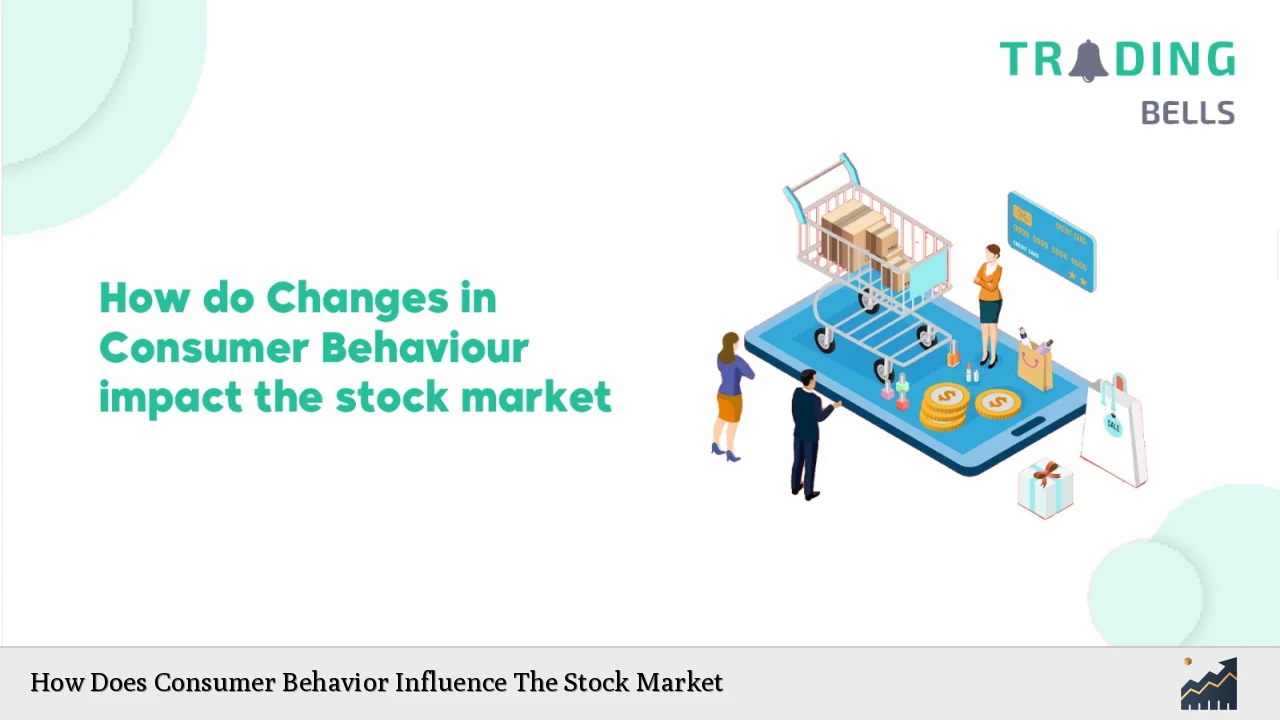Consumer behavior plays a pivotal role in shaping stock market dynamics. The decisions made by consumers regarding spending, saving, and investing directly influence market trends and stock valuations. Understanding these behaviors through the lens of behavioral finance reveals how psychological factors, economic conditions, and social influences intertwine to affect investor sentiment and market outcomes.
| Key Concept | Description/Impact |
|---|---|
| Consumer Confidence Index (CCI) | The CCI measures consumer optimism about the economy. Higher confidence typically correlates with increased spending and investment in the stock market. |
| Herding Behavior | Investors often mimic the actions of others, leading to market trends that can result in bubbles or crashes. This behavior is influenced by social dynamics and emotional responses. |
| Loss Aversion | According to prospect theory, individuals fear losses more than they value equivalent gains, which can lead to irrational decision-making during market fluctuations. |
| Market Volatility | Increased volatility often results in heightened consumer anxiety, leading to reduced spending and investment. This creates a feedback loop that can exacerbate market downturns. |
| Economic Indicators | Factors such as unemployment rates, inflation, and interest rates influence consumer behavior. Positive indicators can boost confidence, while negative ones can lead to cautious spending. |
Market Analysis and Trends
Recent trends indicate that consumer behavior is increasingly influenced by psychological factors rather than purely economic indicators. For instance, during periods of economic growth, consumer confidence typically rises, leading to increased spending and investment in the stock market. Conversely, during economic downturns or periods of high uncertainty—such as the COVID-19 pandemic—consumer sentiment tends to decline significantly.
Current Market Statistics
- Consumer Confidence: As of late 2024, consumer optimism in the U.S. has fluctuated but recently reached its highest level since before the pandemic, indicating a potential increase in spending and investment behaviors.
- Market Volatility: The VIX index, which measures market volatility, has shown significant spikes during periods of economic uncertainty, reflecting heightened consumer anxiety and potential declines in discretionary spending.
Behavioral Insights
Research indicates that consumers are influenced by emotional responses to market conditions. For example:
- Fear of Loss: Many investors tend to hold onto losing stocks longer than they should due to loss aversion, which can lead to prolonged downturns in stock prices.
- Overconfidence Bias: During bullish markets, investors may become overly confident in their ability to predict future price movements, leading to speculative bubbles.
Implementation Strategies
Investors can leverage insights into consumer behavior to inform their strategies:
- Timing Investments: Understanding when consumer confidence is likely to rise can help investors time their entry into the market more effectively.
- Diversification: Given the unpredictability of consumer behavior during volatile periods, maintaining a diversified portfolio can mitigate risks associated with sudden changes in market sentiment.
- Monitoring Economic Indicators: Keeping an eye on key economic indicators—such as employment rates and inflation—can provide insights into potential shifts in consumer behavior.
Risk Considerations
Investing based on consumer behavior involves inherent risks:
- Market Sentiment: Emotional reactions can lead to irrational decision-making among investors. For instance, panic selling during a market downturn can exacerbate losses.
- Behavioral Biases: Investors must be aware of their own biases—such as overconfidence or herd mentality—that may cloud judgment.
- Economic Shifts: Rapid changes in economic conditions can alter consumer behavior unexpectedly, impacting stock prices and overall market stability.
Regulatory Aspects
Regulatory bodies like the SEC monitor market activities to ensure transparency and protect investors from fraudulent practices. Understanding these regulations is crucial for investors looking to navigate the complexities of consumer-driven markets:
- Disclosure Requirements: Companies must disclose relevant information that may affect investor decisions, including insights into consumer behavior trends.
- Market Manipulation Laws: Regulations are in place to prevent practices that could distort market perceptions based on misleading information about consumer sentiment or company performance.
Future Outlook
Looking ahead, several trends are likely to shape how consumer behavior influences the stock market:
- Increased Digital Engagement: As consumers become more engaged online, social media sentiment may play a larger role in shaping perceptions about companies and their stock prices.
- Sustainability Concerns: Growing awareness around environmental issues may lead consumers to favor companies with sustainable practices, impacting stock valuations accordingly.
- Global Economic Factors: International events—such as geopolitical tensions or global pandemics—will continue to influence consumer confidence and behavior across markets.
Frequently Asked Questions About How Does Consumer Behavior Influence The Stock Market
- What is the Consumer Confidence Index (CCI)?
The CCI measures how optimistic or pessimistic consumers are regarding their expected financial situation and the overall economy. - How does herding behavior affect stock prices?
Herding behavior leads investors to follow trends set by others rather than making independent decisions based on fundamentals. - What is loss aversion?
Loss aversion is a principle from behavioral finance indicating that people prefer avoiding losses over acquiring equivalent gains. - How do economic indicators influence consumer behavior?
Economic indicators such as employment rates and inflation directly impact consumers’ willingness to spend or invest. - What role does volatility play in consumer spending?
High volatility often leads to increased anxiety among consumers, which can result in reduced spending and investment activity. - How can investors use behavioral finance principles?
Investors can apply behavioral finance principles by understanding psychological biases that may affect their decision-making processes. - What are some strategies for mitigating risks associated with consumer behavior?
Diversification and monitoring economic indicators are effective strategies for managing risks linked to unpredictable consumer behavior. - How do regulatory bodies impact investor confidence?
Regulatory bodies help ensure transparency and fairness in the markets, which can enhance investor confidence amid fluctuating consumer behaviors.
In conclusion, understanding how consumer behavior influences the stock market is essential for individual investors and finance professionals alike. By analyzing psychological factors alongside economic indicators, stakeholders can make more informed investment decisions that align with prevailing market trends.

